For All 9 Lives, Focus on Long-Term Cat Wellness
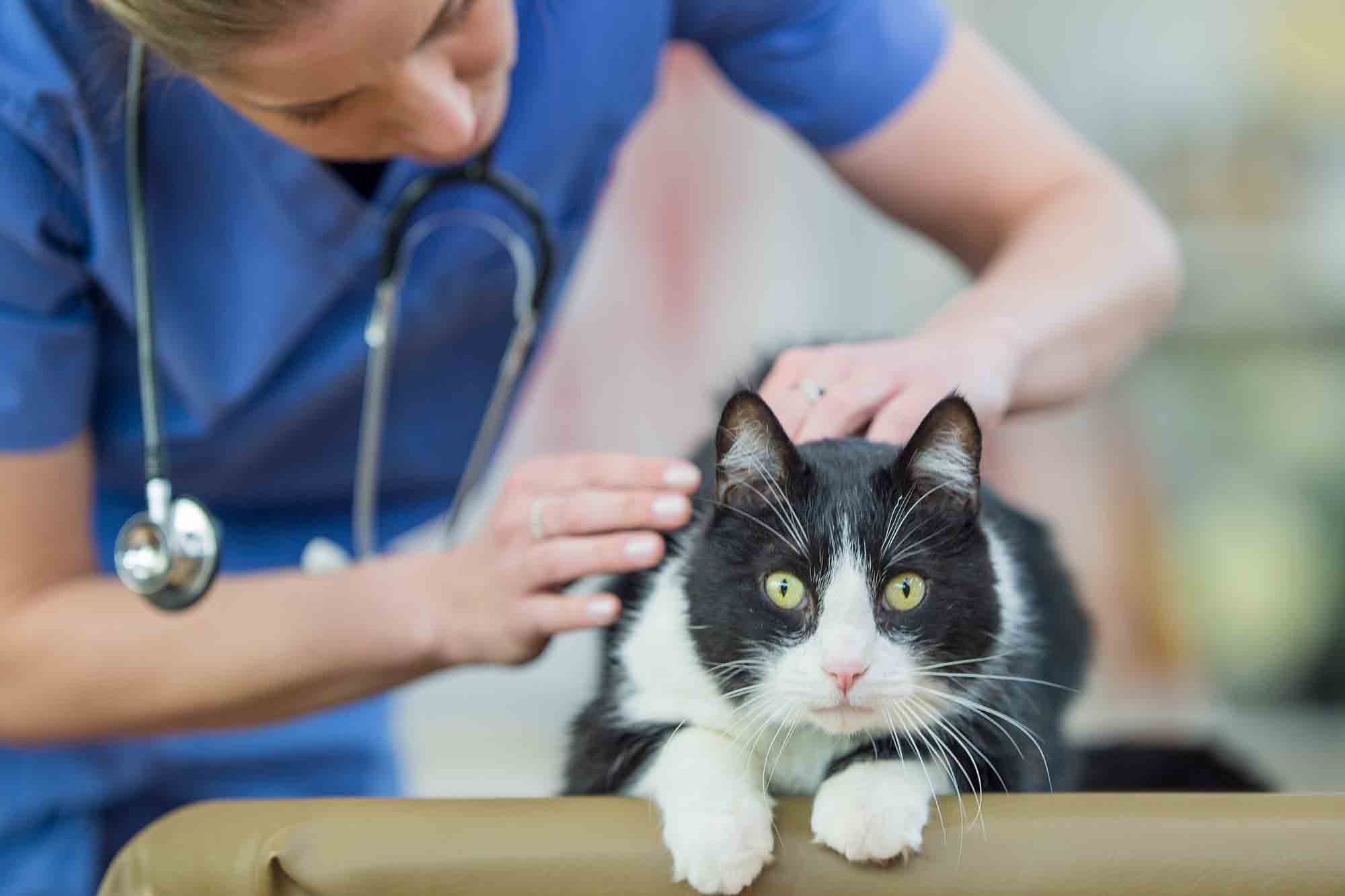 Cats just don’t embrace travel the way most dogs do. In fact, for a cat who values territory and routine above all else, any time spent in a vehicle of any kind can be profoundly upsetting. And yet, a cat’s disinclination to leave home is only one contributing factor that results in fewer veterinary visits.
Cats just don’t embrace travel the way most dogs do. In fact, for a cat who values territory and routine above all else, any time spent in a vehicle of any kind can be profoundly upsetting. And yet, a cat’s disinclination to leave home is only one contributing factor that results in fewer veterinary visits.
Another reason, of course, centers on the fact that cats are naturally quiet about illness or injury. As a means of self-preservation, this method inevitably leads to less attention when, really, addressing troublesome symptoms is what’s needed to maintain cat wellness. So, between an anxious, travel-hating cat and one who hides illness, what is a dedicated cat owner to do?
Nip Problems in the Bud
We understand the predicament very well. With a little training, coaxing, and positive reinforcement, your cat can adapt to crate-time and traveling away from the comforts of home. The benefits that stem from your commitment to routinely scheduled wellness exams multiply as the years go by.
Faced With a Pet Emergency, Now What?
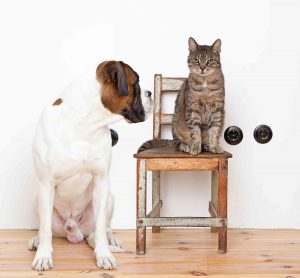 We understand that seeking out emergency care for a pet is a decision not made lightly among responsible pet owners. While symptoms like vomiting or diarrhea can be troubling – they could also be related to a hairball or fleeting GI distress. Other situations clearly demand immediate medical intervention. Also, many symptoms fall into a grey area that inhibits a clear understanding of the severity. When in doubt, we can help you understand what to look for in a true pet emergency and how to help your pet in need.
We understand that seeking out emergency care for a pet is a decision not made lightly among responsible pet owners. While symptoms like vomiting or diarrhea can be troubling – they could also be related to a hairball or fleeting GI distress. Other situations clearly demand immediate medical intervention. Also, many symptoms fall into a grey area that inhibits a clear understanding of the severity. When in doubt, we can help you understand what to look for in a true pet emergency and how to help your pet in need.
Pet Wellness Care for a Longer, Healthier Life
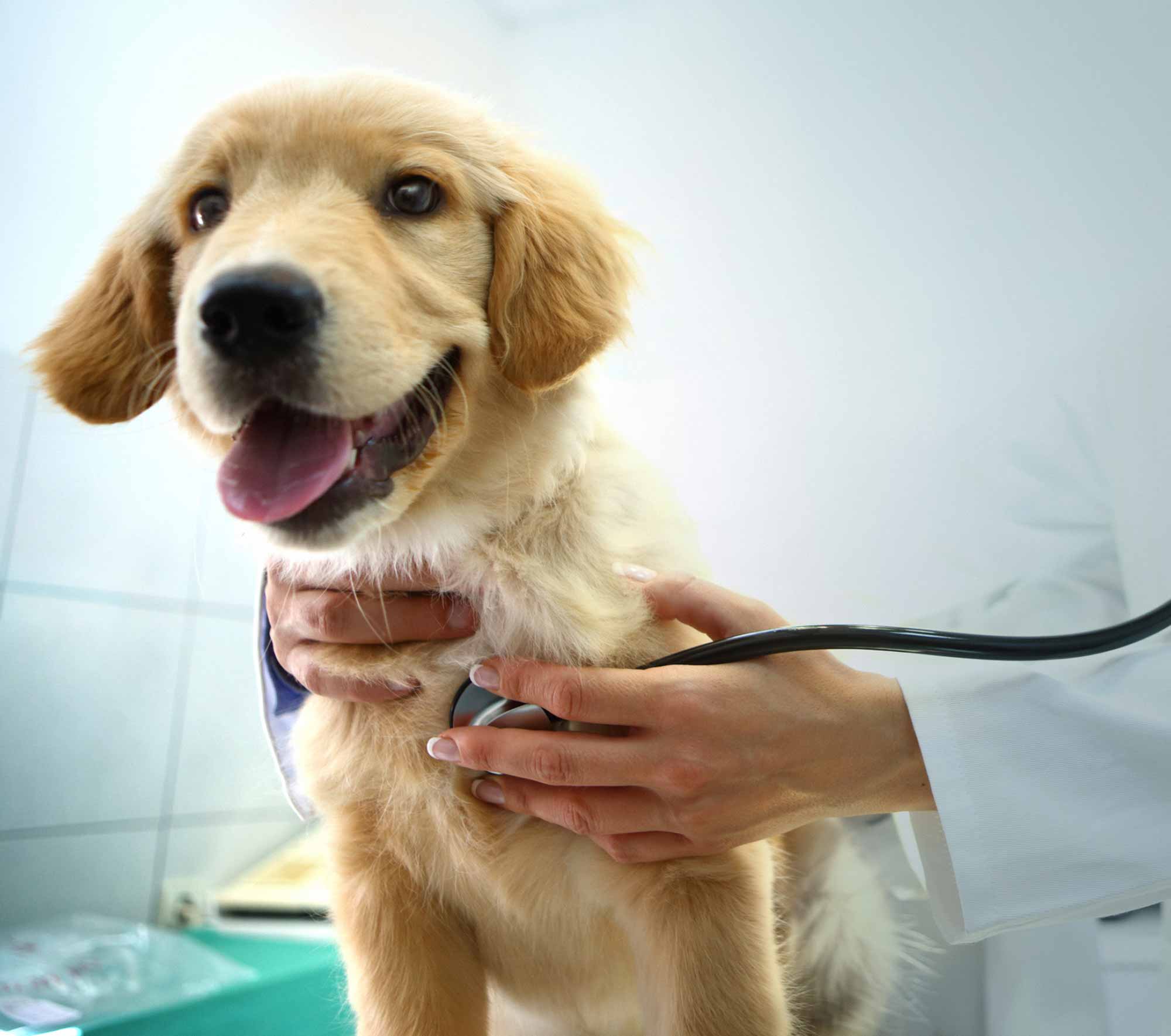 Have you ever wondered why we recommend yearly, or twice-yearly, wellness exams for your pet? Yes, we need to update your pet’s vaccinations and, of course, we love the chance to see his or her sweet face and to catch up with you, but pet wellness care is about so much more.
Have you ever wondered why we recommend yearly, or twice-yearly, wellness exams for your pet? Yes, we need to update your pet’s vaccinations and, of course, we love the chance to see his or her sweet face and to catch up with you, but pet wellness care is about so much more.
Why Pet Wellness?
When you commit to regular pet wellness exams, you are giving your veterinarian the chance to get to know your pet and establish a baseline level of health for him or her. When we know your pet’s “normals”, it’s that much easier to pinpoint problems as they crop up. Early diagnosis of health issues often allows us to treat the condition before it progresses.
What to Expect
The routine wellness examination provides a clear picture of your pet’s overall health. By identifying issues or irregularity through the physical examination and/or diagnostic testing, we gain a head start on keeping your pet healthy.
The initial assessment includes a thorough examination of your pet’s eyes, ears, mouth, teeth, abdomen, joints, skin, and coat.
February Is National Pet Dental Month: Why Your Dog/Cat Needs a Dental Cleaning at All Creatures Brooklyn Veterinarian
All Creatures Brooklyn Veterinarian Hospital
Brushing your pet’s teeth may not be at the top of your to do list, but according to the to the American Veterinary Dental Society, 80 to 85 percent of all pets have periodontal disease. That number jumps to 100 percent in pets over 4 years of age. In fact, it is the number one health problem diagnosed in dogs and cats.
Dental health is important to the overall health of your pet because it affects the health of the heart, lungs and kidneys, which is why it is important to provide your pet with proper daily dental care before there is a problem. February is the perfect time to get into this habit since it is National Pet Dental Health Month. Help protect your pet from periodontal disease, and read this week’s post with dental health tips for your pet.
Pet toothpaste may come in a variety of flavors such as beef, chicken or even peanut butter should your dog have a preference. Human toothpaste has detergent in it and is not recommended for dogs as the product is made for humans who rinse and spit.
Dr. Jan Bellows, president of the American Veterinary Dental College states, “Brushing is the gold standard, and many dogs and some cats will tolerate having their teeth brushed if the introduction to brushing is managed gently and gradually. In addition, several companion animal nutrition companies offer dental diets. The texture of those foods generates a mechanical cleansing effect on the surface of the tooth as the pet is eating. Dental treats such as chews can also be effective, either mechanically by scraping the tooth surface or by chemically removing excess calcium in saliva that could otherwise be deposited on the teeth as calculus. There are also plaque-retardant products available in the form of a water additive, spray or gel, and products that are used to seal the surface of the teeth to prolong the beneficial effect of professional dental scaling. Talk to your veterinarian for more advice about preventing dental disease in your pets.”
To address the significance of oral health care for pets, the AVMA sponsors National Pet Dental Health Month every February. Book an appointment today at All Creatures Brooklyn Veterinarian Hospital and Click on the links below to learn more about how you can improve the dental (and overall) health of your pets.
Test Yourself
How much do you know about your pet’s dental health? Take this quiz to find out!
Watch
Dr. Sheldon Rubin gives easy, step-by-step instructions on how to teach a dog or cat to accept a daily tooth brushing. He also describes healthy treats, and explains the true risks of periodontal disease in pets.
Periodontal disease is the most common clinical condition in cats and dogs even though it’s completely preventable. Dr. Cindy Charlier explains what periodontal disease is and how we can prevent our pets from getting it.
How often do you take your pet in for dental cleanings? Please remember; while February is National Pet Dental Health Month, dental health should be a daily ritual for pet owners all year long. What are some other ways you help support your pet’s dental health? Share your story with us on Facebook.
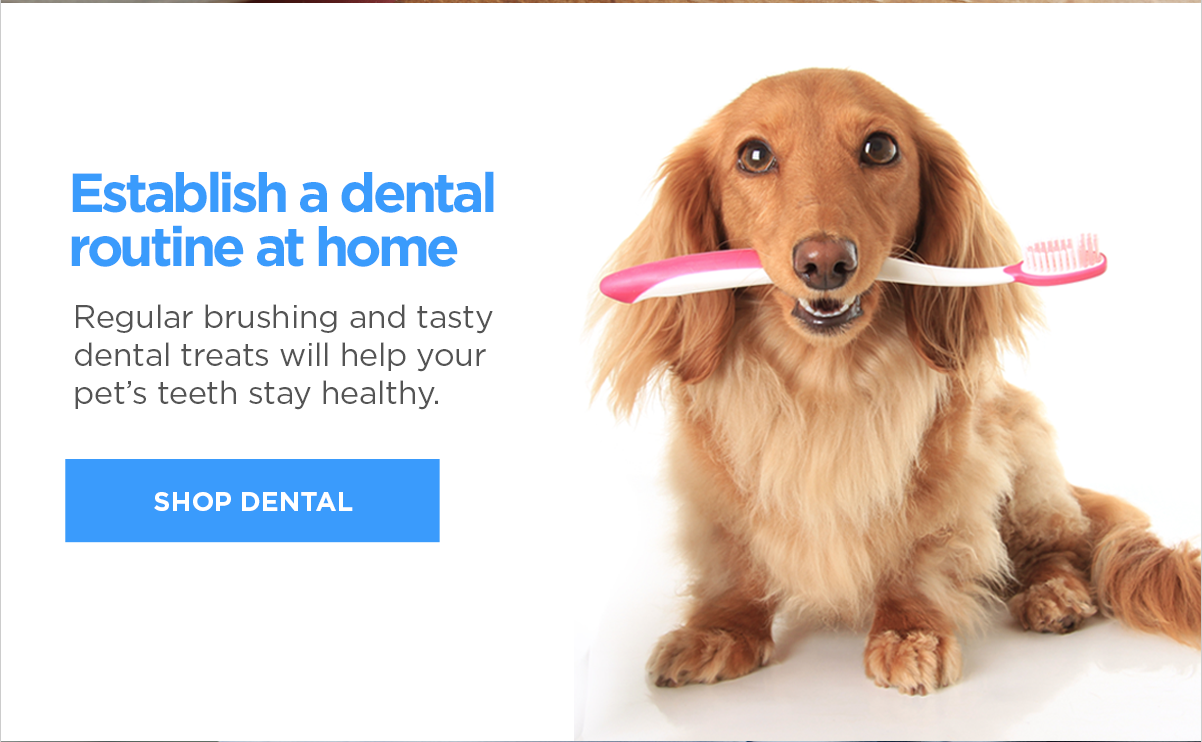
Plan a dental routine at home
15 Foods You Can Treat Your Dog To
*Disclaimer*: If offering these treats to your dog, make sure to avoid adding spices and herbs as these often lead to GI upset.**
As pet owners, we are often warned about what foods not to share with our pups but sometimes it is hard to resist those puppy dog eyes. Here are 15 foods you can share with your dog!
Keep in mind that all dogs are different and just like people some dogs could be allergic to certain foods. Always try new foods in small amounts and watch for any side effects.
- Oatmeal
- Peanut Butter
- Chicken
- Yogurt
- Carrots
- Broccoli
- Green Beans
- Pumpkin
- Eggs
- Salmon
- Cottage Cheese
- Apple Slices
- Cheese
- Sweet Potatoes
- Rice
You can make your own dog treats with these ingredients and more. Check out our DIY Dog Treats board on Pinterest for recipes! Enjoy these treats with your dogs this Winter and remember to always treat in moderation.

How To Greet A Dog
How To Greet A Dog
You know that feeling you get every time you see a new dog? That somewhat uncontrollable urge to run over scoop that pup up and snuggle it for hours. As tempting as it may be, think about it from the dog’s point of view, scary right? If a dog sees you as a threat they may feel like they have no choice other than to bite. Here are some tips on how to greet dogs in a non-threatening manner.
– Always ask the dog’s owner
– Do not make direct eye contact
– Approach the dog slowly
– Get down on their level
– Wait for them to approach you\
– Pet gently
– Pay attention to their body language
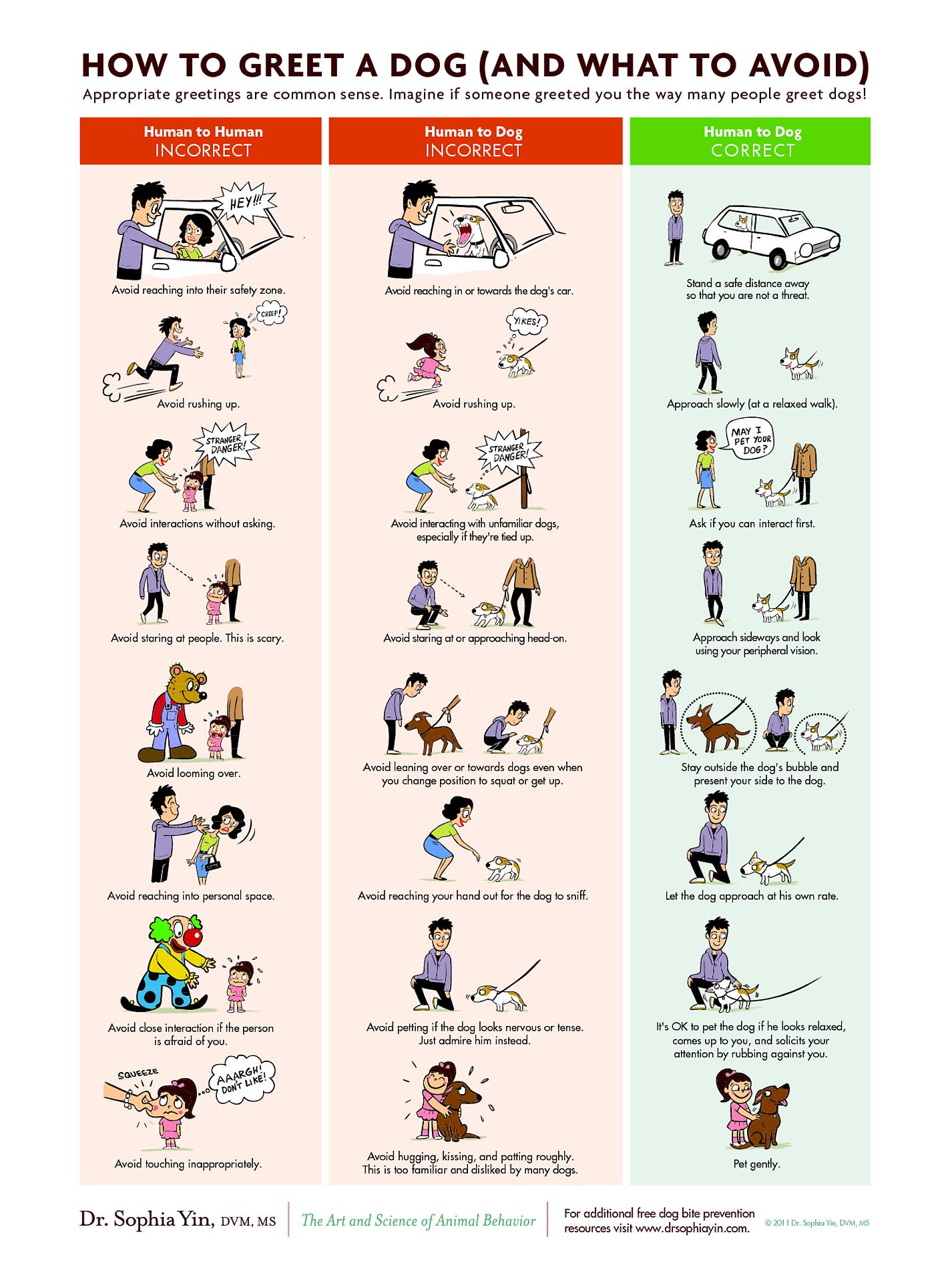
Laser Therapy
Have you ever considered that pain can be managed without drugs or surgery?
At All Creatures Vet Hospital of Brooklyn we are a Companion Animal Laser Therapy Pain Relief Center.
https://www.litecure.com/companion/for-pet-owners/
Drug Free. Surgery Free. Relief for your pet.
How does it work?
Laser light is delivered to the affected area by a non-invasive hand- piece. This Class IV laser light induces a biological response within the cells called “photo-bio-modulation” which leads to reduced pain, reduced inflammation, and increased healing speed. During treatment your pet may feel gentle soothing warmth.
What does it treat?
Many common chronic and acute conditions can be helped with Laser therapy.
To name a few:
-Arthritis
-Wounds
-Degenerative Joint Disease
-Post Surgical Healing and Pain Relief
-Dermatological Disorders
What are the treatment protocols?
Treatment protocols are unique to each patient and condition. Upon an initial Veterinary assessment, a plan will be created which will vary in time, complexity and cost. Often times, laser can also be used to enhance other treatment plans recommended by the Veterinarian.
Staff Thoughts:
What is your favorite thing about performing laser therapy?
“I really enjoy being able to see the progress in older pets becoming more mobile and comfortable.”
-Kimmy
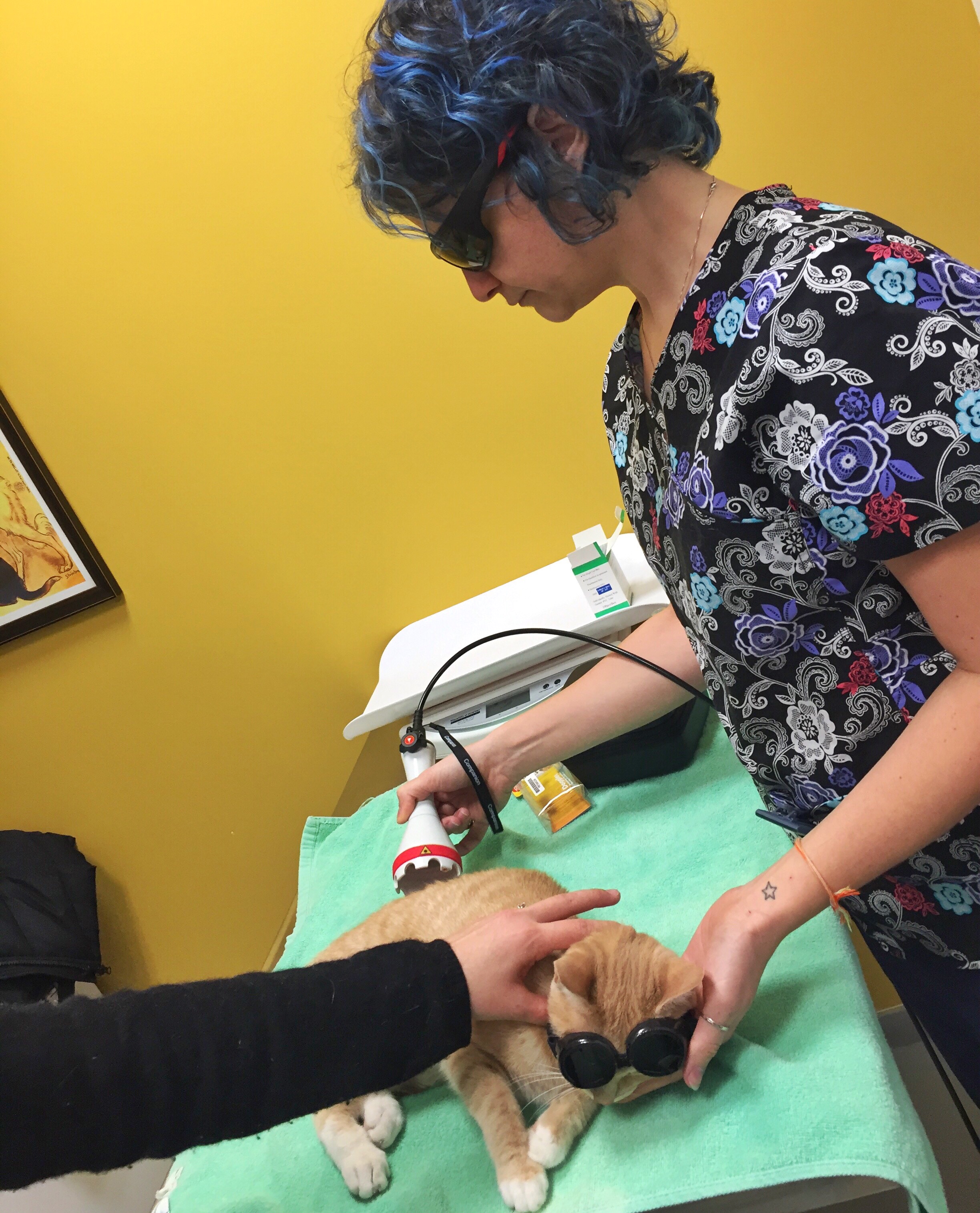
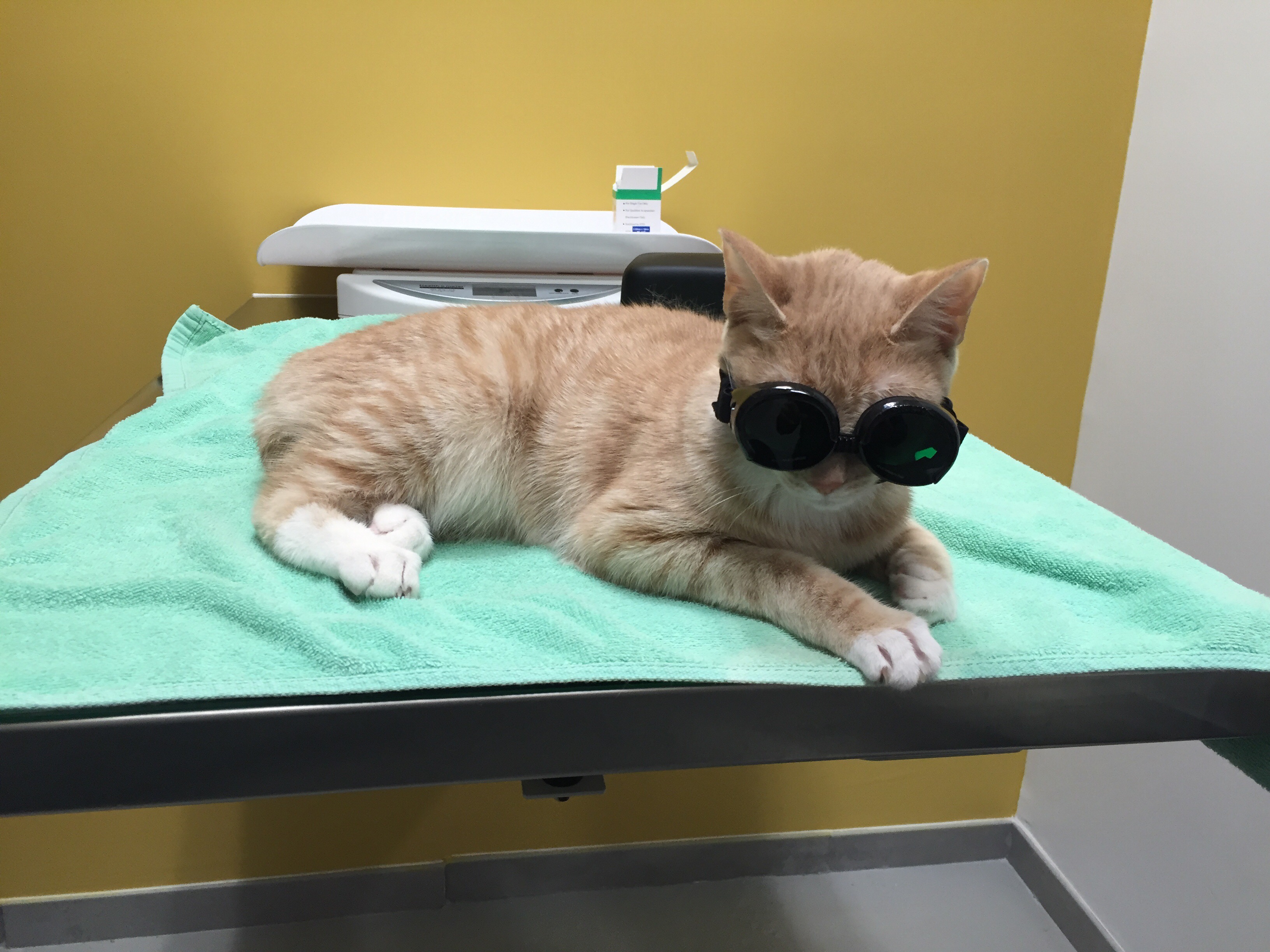

Kid Friendly Open House!!
Now that we are settled in we are holding a kid friendly OPEN HOUSE on Sunday April 17th from 12-4pm to celebrate!! All Creatures Veterinary Hospital of Brooklyn has now been open for over a month and we are loving the neighborhood. If you haven’t checked out Washington Avenue, it embodies everything there is to love about Brooklyn. Bring the family for:
Kid Friendly Activities
- Does your child or pet have a favorite toy with a hole that needs mending? Get dressed up for surgery and help our vets fix them up!
- Learn what we see on a xray!
- Visit with adoptable cats and kittens!
Also enjoy snacks, receive goody bags for you and your pets, have a chance to win fantastic door prizes, and more!

We are looking forward to this opportunity to have some fun and answer any questions you have about us or our hospital.

